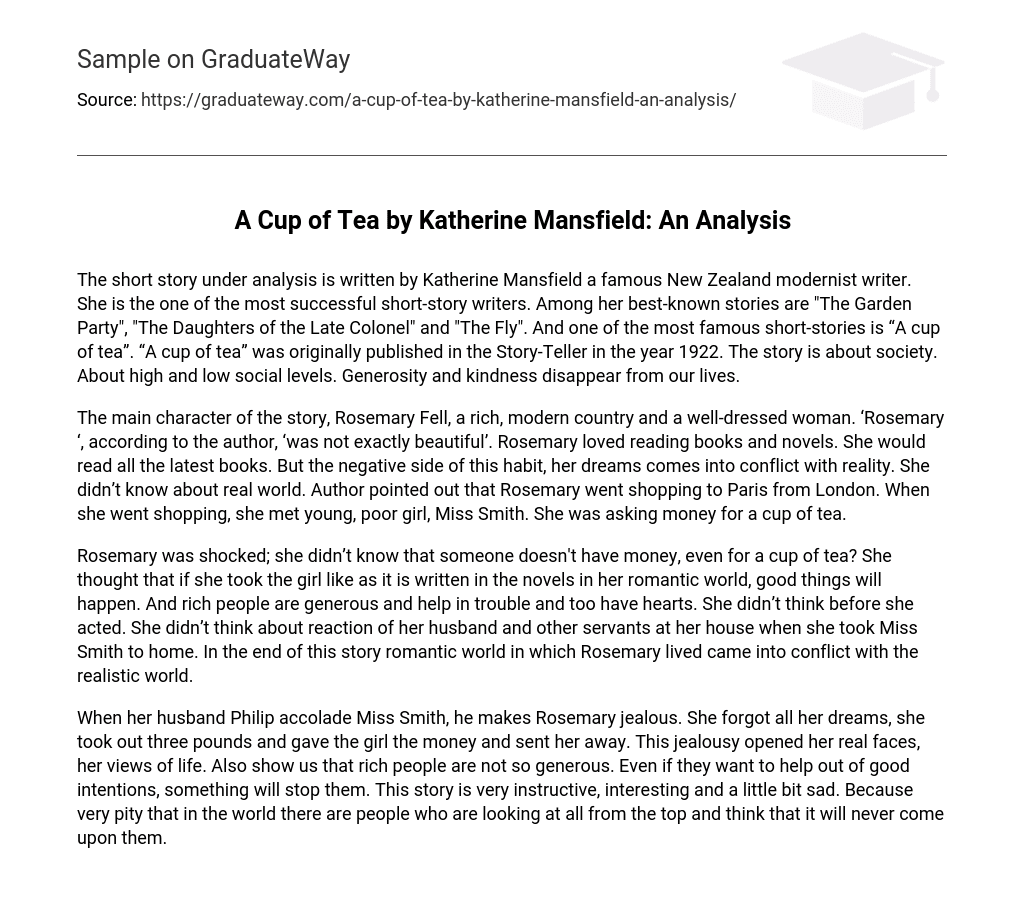Written by Katherine Mansfield, a renowned New Zealand modernist writer, the short story being analyzed is considered one of her notable works. Mansfield is widely recognized as one of the most accomplished short-story writers and has written famous stories such as “The Garden Party,” “The Daughters of the Late Colonel,” and “The Fly.” One of her well-known pieces is “A cup of tea,” which was first published in the Story-Teller in 1922. This narrative focuses on society and explores the stark contrast between different social classes while examining how acts of generosity and kindness seem to disappear from our lives.
The story features Rosemary Fell, a wealthy and fashionable woman. The author describes her as not particularly attractive. Rosemary had a passion for reading books and novels, always keeping up with the latest releases. However, this habit had its downside as her dreams clashed with reality and she remained blissfully unaware of the real world. One day, while shopping in Paris during a trip from London, Rosemary encountered Miss Smith, a young and impoverished girl who asked for money to buy a cup of tea.
Rosemary was taken aback; she was unaware that someone could be so destitute that they couldn’t afford a simple cup of tea. She believed that if she treated the girl as the novels in her romantic world depicted, good fortune would follow. She held the belief that wealthy individuals were generous and willing to assist those in need, with compassionate hearts. She acted without considering the potential reactions of her husband and other household staff when she brought Miss Smith home. Ultimately, the clash between Rosemary’s idealistic romantic world and the harsh realities of the real world emerged as the story unfolded.
When Rosemary’s husband Philip praises Miss Smith, it makes Rosemary jealous, causing her to forget her dreams and give three pounds to Miss Smith, sending her away. This jealousy reveals Rosemary’s true character and outlook on life while also showing that wealth does not always lead to generosity. Despite their desire to help, wealthy individuals often encounter obstacles. This narrative is both informative and compelling yet somewhat sorrowful. It is disheartening that some people in the world look down on others and believe they will never experience similar situations.





